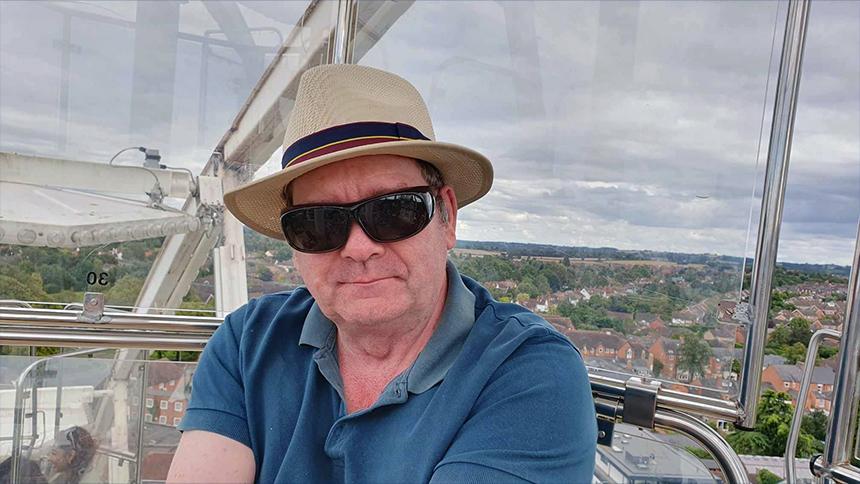Real stories
End the disparity between dementia and cancer care
Tim Little wants the support you get after being told you have dementia to be more like that you’d get after a cancer diagnosis.
Content warning – mentions suicidal feelings. If you need support you can call Samaritans for free on 116 123.
If you get a cancer diagnosis, you stand a good chance of effective treatment leading to a cure.
If you get a dementia diagnosis, you stand a good chance of not getting effective treatment and no chance of a cure. There are very few effective treatments for dementia and not a single type has a cure.
Cancer needed enhanced funding to find the treatments and potential cures – now dementia needs this.
Dementia is a terminal diagnosis, it is a downward slope. Some are on a steeper slope than others but the only way is down.
With cancer you stand a good chance of returning to your previous life, employment and hobbies. With dementia, your life will be irrevocably changed.

My dementia diagnosis
I went to the GP in 2019, saying that I felt my intellect had dropped a couple of notches, and finally received a diagnosis of Lewy body dementia 17 months later. This news was delivered by phone on a Friday morning during the second lockdown – not an experience to be recommended.
I thought my life was over after being told to make sure my will was up to date, to put powers of attorney in place and that someone from Alzheimer’s Society would contact me in six weeks.
Not knowing that the Society dealt with all types of dementia, I thought, ‘Why do I want to talk to them? I haven’t got Alzheimer’s!’
It took the rest of the day to get my head around the idea, then I wanted to talk to someone. But it was the weekend, so I asked Mr Google.
Based on my symptoms, it appeared that I had a maximum of five years left. On Sunday afternoon, I looked at my wife and said, ‘I want to go to Switzerland.’ (Dignitas)
It took me two years to learn to want to live again.
Far from ideal
This is a far from ideal way to get a terminal diagnosis.
After joining a peer support group with Alzheimer’s Society and talking to people who understand, I started to rebuild my life. They shared their strategies for dealing with the inevitable anxiety and depression. I was also told of different medications to ease symptoms.
Approximately eight weeks after diagnosis I asked the dementia clinic if I could try some medication, only to be told they had just been talking about discharging me.
A terminal diagnosis and you need to ask about medication?
I had to fight for nine months to be told which area of my brain was affected. Why?
I strongly believe that the process of dementia diagnosis needs to be looked at from the patient’s point of view.
If I had terminal cancer, I don’t think there would have been discussions about discharging me so soon and I would have got answers to my questions more easily.
Dementia still a dirty word
We’ve set up a peer support service in our part of Essex. I know there are a couple of people still with us because there was someone for them to come and talk to. Because if you haven’t got it, you don’t get it.
We need dementia to be prioritised in the way that cancer has been. But dementia is still a dirty word.
Join our campaigns
If more of us speak up we can make them listen, and they’ll have to take action.
Join our call by becoming a campaigner today.

